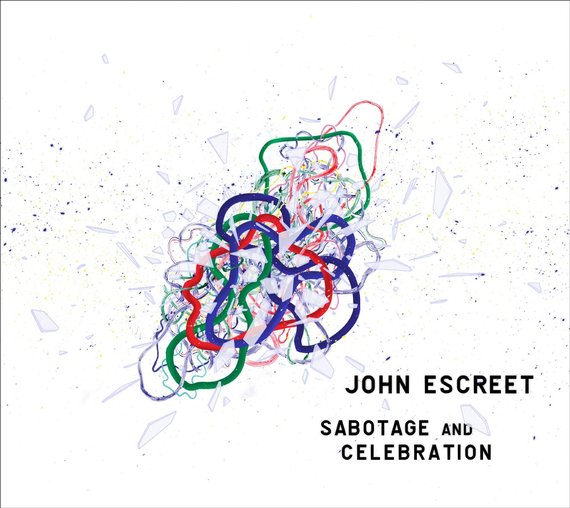John Escreet is a 29-year-old pianist originally hailing from Doncaster, England, who has resided stateside since 2006. He studied at the Manhattan School of Music with the pianists Kenny Baron and Jason Moran. His album Consequences from 2008 was hailed by the New York Times' Nate Chinen as "a highly accomplished debut." Mr. Escreet, now living in Brooklyn, has become an increasingly omnipresent part of the progressive music scene in New York. Besides leading his own groups and producing five of his own albums as a leader, he can be heard in the piano chair on Jamie Baum's fine new release In This Life and on Alchemy with the progressive Iraqi-American trumpeter Amir El Saffar. I have been intrigued by the pianist's rapid development.
Mr. Escreet's Sabotage and Celebration is a complex and intriguing album that showcases the young pianist's increasing maturation as a composer. Like his playing, the album challenges the senses. It has moments of majestic, lyrical beauty, like the expansive "He Who Dares" and the melodic "Laura Angela," as well as stretches of difficult, discordant free improvisations, like the aptly titled songs "Sabotage and Consequences," "The Decapitator" or the jagged "Animal Style." Oftentimes these elements are woven into the same composition creating jarring juxtapositions. Mr. Escreet's musical vocabulary is effective, creating aural images that relay ideas that he is trying to express. Harsh jabs at the piano, squealing honks of the saxophone or piercing squeals of a trumpet have all been used by Mr. Escreet to make his point. On this album he also deftly orchestrates both string and brass sections that create dramatic backdrops for his more expansive compositions, like "Beyond Your Wildest Dreams" and the aforementioned "He Who Dares." The music swells organically creating an atmospheric surround that allows for the eruptive solos and taut ensemble playing to soar.
Throughout it all, Escreet's formidable technique as a pianist is allowed to blossom. He agilely creates passages that range from single note ruminations to explosive bursts. His effective use of the synchronous and dueling voices of saxophonists of David Binney and Chris Potter on "He Who Dares" create a magical interlude.
Escreet can play with extraordinary beauty, resplendent with crescendos of sound that belie a classical background. Make no mistake about it, Mr. Escreet wishes to challenge the boundaries of the music he creates with an approach that seems to have one foot in the lyrical and one foot in the abstract. While I struggle with some of the ear assaulting dissonance of the abstract parts of his music at times, I find myself being able to appreciate his efforts more and more. On Sabotage and Celebration Mr. Escreet creates moments of magic that are all too rarely found in a great deal of modern jazz and for this he is an artist to be watched closely.

